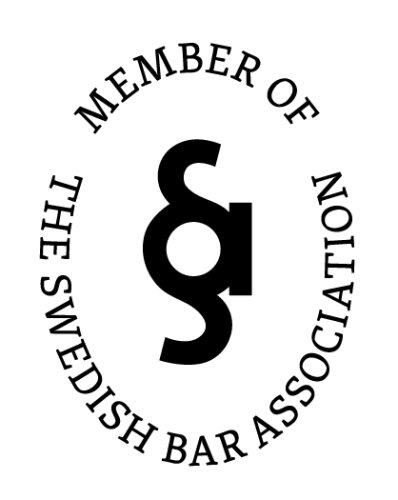
Best Family Lawyers in Sweden
Share your needs with us, get contacted by law firms.
Free. Takes 2 min.
Free Guide to Hiring a Family Lawyer
Or refine your search by selecting a city:
List of the best lawyers in Sweden

About Family Law in Sweden
Family law in Sweden encompasses a wide range of legal issues that affect families, including marriage, divorce, child custody, and inheritance. The Swedish legal system aims to ensure fairness and equality in familial relationships and protect the welfare of children. Swedish family law seeks to balance the interests of all parties involved and often emphasizes mediation and collaborative solutions. The regulatory framework is governed by various laws, such as the Marriage Code, the Parental Code, and the Inheritance Code, among others.
Why You May Need a Lawyer
There are several reasons why individuals may need to seek legal advice in family matters:
- Divorce or Separation: Navigating the legal process of divorce or the division of assets and custody arrangements requires understanding complex legal stipulations.
- Child Custody and Visitation Rights: Disputes over custody require legal guidance to ensure a fair and beneficial arrangement for all involved, primarily focusing on the child's best interests.
- Adoption: Legal procedures surrounding adoption need compliance with specific regulations and thorough understanding and completion of all necessary paperwork.
- Spousal or Child Support: Calculating fair alimony or support payments benefits from professional legal input corresponding to both parties’ needs and capacities.
- Domestic Violence: Legal counsel is crucial for victims seeking protective measures and for navigating any resultant legal proceedings.
- Inheritance Disputes: Lawyers mediate in conflicts over estates to ensure compliance with the law and equitable distribution of assets.
Local Laws Overview
The key aspects of family law in Sweden include:
- Marriage and Partnership: Swedish law accommodates both marriages and registered partnerships for same-sex couples with equal rights and obligations.
- Divorce: Sweden implements a no-fault divorce system, meaning either partner can request a divorce without assigning blame.
- Child Custody: The best interests of the child are the primary consideration in custody arrangements, often supporting joint custody by default.
- Property Division: Assets accumulated during marriage are often divided equally, though prenuptial agreements can alter this outcome.
- Parental Rights: Legal rights and obligations over children necessitate that parents provide financial, emotional, and educational support.
Frequently Asked Questions
What is the process for filing for divorce in Sweden?
You can file for divorce either jointly with your spouse or individually. There may be a required reflection period if you disagree or have children under 16.
How is child custody decided?
Custody is determined based on the best interests of the child, typically favoring joint custody unless there are special circumstances.
What rights do unmarried partners have?
Unmarried partners have certain legal protections similar to married couples, especially if they have lived together for more than six months, but notably lack statutory inheritance rights unless outlined in a will.
How are assets divided in a divorce?
Assets acquired during the marriage are generally divided equally unless modified by a prenuptial agreement or the couple's own agreement.
Is mediation available in family disputes?
Yes, mediation is encouraged in Sweden and is often a required step in resolving disputes, particularly in custody and visitation matters.
Can I change my child's name after divorce?
Changing a child's surname requires both parents' consent if they share custody, or the court’s permission otherwise.
How can I apply for child support?
Child support can be arranged privately or through the Swedish Social Insurance Agency, which can enforce payments if necessary.
What steps can I take if I experience domestic violence?
You should report the abuse to the police immediately and seek protection. Legal assistance and shelter services are available for victims.
What legal rights do grandparents have?
Grandparents do not have automatic visitation rights; however, relations with grandchildren can be considered if deemed in their best interest.
How does adoption work in Sweden?
To adopt, you must apply through authorized agencies and undergo a comprehensive assessment. The process is guided by the child's best interests.
Additional Resources
Several resources can provide valuable information and assistance:
- Swedish National Courts Administration: For guidance on the legal process and finding specific court details.
- The Swedish Family Law and Parental Support Authority: Offers information on parental and family support services.
- FAMILY Law Experts: Legal organizations specializing in family law issues can provide consultations and representation.
- Local Municipalities: Provide mediation services and support for family-related legal challenges.
Next Steps
If you find yourself in need of legal assistance regarding family matters in Sweden, consider these steps:
- Identifying your legal needs and deciding on the specific type of expertise required for your case (e.g., divorce, custody).
- Consultation with a qualified family law attorney to obtain tailored advice and explore potential resolutions.
- Gather all necessary documentation and records related to your case to expedite legal processes.
- Explore mediation services as a first step towards resolving disputes amicably.
- Consider reaching out to support organizations if you're dealing with issues such as domestic violence.
Lawzana helps you find the best lawyers and law firms in Sweden through a curated and pre-screened list of qualified legal professionals. Our platform offers rankings and detailed profiles of attorneys and law firms, allowing you to compare based on practice areas, including Family, experience, and client feedback.
Each profile includes a description of the firm's areas of practice, client reviews, team members and partners, year of establishment, spoken languages, office locations, contact information, social media presence, and any published articles or resources. Most firms on our platform speak English and are experienced in both local and international legal matters.
Get a quote from top-rated law firms in Sweden — quickly, securely, and without unnecessary hassle.
Disclaimer:
The information provided on this page is for general informational purposes only and does not constitute legal advice. While we strive to ensure the accuracy and relevance of the content, legal information may change over time, and interpretations of the law can vary. You should always consult with a qualified legal professional for advice specific to your situation.
We disclaim all liability for actions taken or not taken based on the content of this page. If you believe any information is incorrect or outdated, please contact us, and we will review and update it where appropriate.
Browse family law firms by service in Sweden
Sweden Attorneys in related practice areas.
Browse family law firms by city in Sweden
Refine your search by selecting a city.














